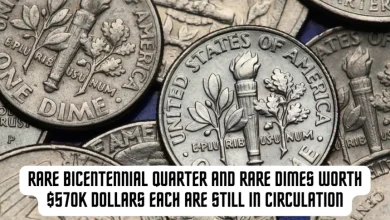Indigo
Indigo
Louis Fischer (1896-1970) was born in Philadelphia. He served as a volunteer in the British Army between 1918 and 1920. Fischer made a career as a journalist and wrote for The New York Times, The Saturday Review and for European and Asian publications. He was also a member of the faculty at Princeton University. The following is an excerpt from his book- The Life of Mahatma Gandhi. The book has been reviewed as one of the best books ever written on Gandhi by Times Educational Supplement.
Notice these expressions in the text. Infer their meaning from the context.
● urge the departure conflict of duties
A|DAELİ KOMİNİMUM
harbour a man like me seek a prop

bend
When I first visited Gandhi in 1942 at his ashram in Sevagram, in central India, he said, “I will tell you how it happened that I decided to urge the departure of the British. It was in 1917.”
He had gone to the December 1916 annual convention of the Indian National Congress party in Lucknow. There were 2,301 delegates and many visitors. During the proceedings, Gandhi recounted, “a peasant came up to me looking like any other peasant in India, poor and emaciated, and said, ‘I am Rajkumar Shukla. I am from Champaran, and I want you to come to my district’!” Gandhi had never heard of the place. It was in the foothills of the towering Himalayas, near the kingdom of Nepal.
Under an ancient arrangement, the Champaran peasants were sharecroppers. Rajkumar Shukla was one of them. He was illiterate but resolute. He had come to the
session to complain about the injustice of the
India Shukla accompanted him everywhere. Then Gandhi returned to his ashram near Ahmedabad Shudda hollowed “Fix a date,” he begged
impressed by the sharecropper’s tenacity and story Gandhi sald. “I have to be in Calcutta on auch and such a
date Come and meet me and take me from there.” Months passed. Shukla was sitting on his haunches at the appointed spot in Calcutta when Gandhi arrived; he waited till Gandhi was free. Then the two of them besanded a train for the city of Patna in Bihar. There Shukla led him to the house of a lawyer named Rajendra Prasad who later became President of the Congress party and of India Rajendra Prasad was out of town, but the servants knew Shukla as a poor yeoman who pestered their master to help the indigo sharecroppers. So they let him stay on the grounds with his companion, Gandhi, whom they took to be another peasant. But Gandhi was not permitted to draw water from the well lest some drops from his bucket pollute the source: how did they know that he was not an untouchableGandhi decided to go first to Muzzafarpur, which 1 Strike out what is not true in the following * Rajkumar Shukla was (1) a sharecropper (II) a politician (I) delegate (iv) alandlord Rajkumar Shukla was (W) physically strong() illiterate. 2. Why is Rajkumar Shukla described as being ‘resolute3. Why do you think the servants thought Gandhi to another peasant?
entire ? . ‘? be
was en route to Champaran, to obtain more complete information about conditions than Shukla was capable of imparting. He accordingly sent a telegram to Professor J.B. Kripalani, of the Arts College in Muzzafarpur, whom he had seen at Tagore’s Shantiniketan school. The train
arrived at midnight, 15 April 1917. Kripalani was waiting at the station with a large body of students. Gandhi stayed there for two days in the home of Professor Malkani, a teacher in a government school. “It was an extraordinary thing in those days,” Gandhi commented, “for a government professor to harbour a man like me”. In smaller localities, the Indians were afraid to show sympathy for advocates of home-rule.
The news of Gandhi’s advent and of the nature of his mission spread quickly through Muzzafarpur and to Champaran. Sharecroppers from Champaran began arriving on foot and by conveyance to see their champion. Muzzafarpur lawyers called on Gandhi to brief him; they frequently represented peasant groups in court; they told him about their cases and reported the size of their fee.
Gandhi chided the lawyers for collecting big fee from the sharecroppers. He said, “I have come to the conclusion that we should stop going to law courts. Taking such cases to the courts does litte good. Where the peasants are so crushed and fear-stricken, law courts are useless. The real relief for them is to be free from fear.” Most of the arable land
in the Champaran district was divided into large



